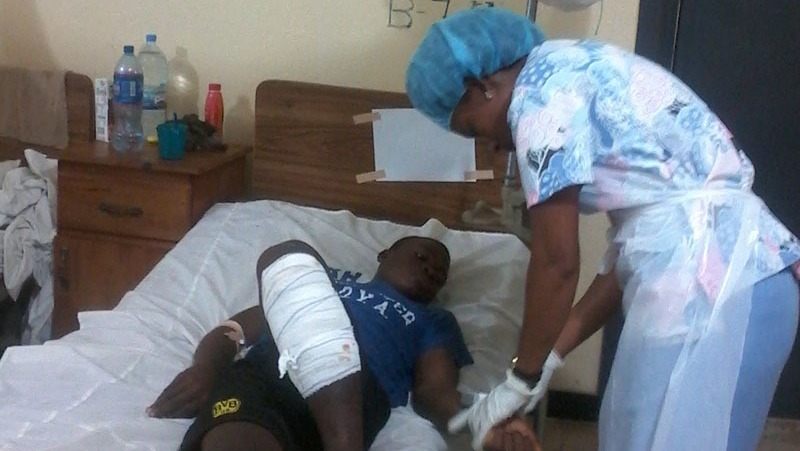
Marconi Collins, a nursing student at the Redemption Hospital in Liberia, cares for a patient as part of her internship, despite fears of Ebola. Photo: Prince Collins/IRIN
irinnews.org - by Prince Collins
MONROVIA, 18 August 2015 (IRIN) - Like hundreds of other nursing students in Liberia, Jerry Songu should have been beginning his internship this month, the final step to graduating and earning his license. Instead, he has chosen to put his studies and future career on hold.
“Ebola has no boundaries,” the 36-year-old, who is in his third year of nursing school at the Caldwell Community Nursing School in the capital Monrovia, told IRIN. “It killed registered nurses and it can also kill practising nurses. So this is nothing to play with.”
“For me, I have resolved to wait until everything [the Ebola outbreak] is totally over,” he said. “My life is important and I must do everything to protect it. Big [senior] doctors died in this country from Ebola and who am I to take the risk? I am just a student. No rush now.”
(READ COMPLETE ARTICLE)
Recent Comments